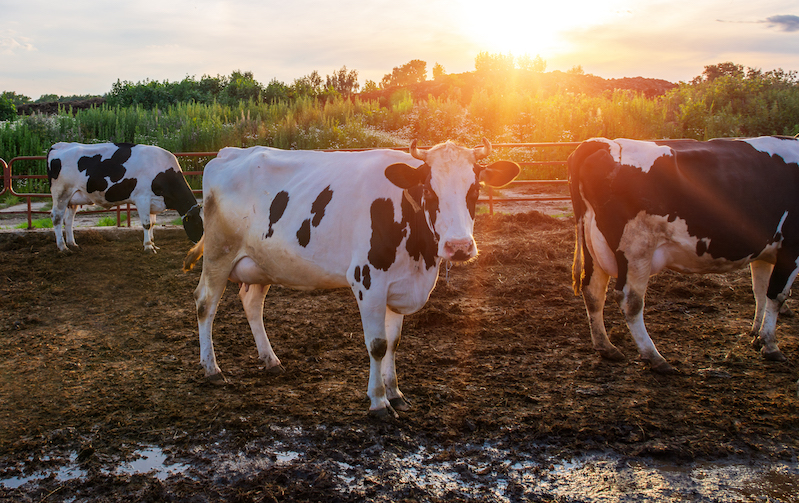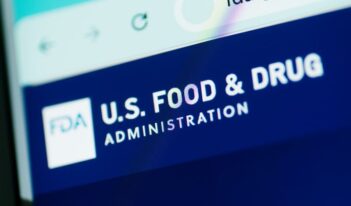
The increasing popularity of municipal regulation over food production in Maine may attract federal preemption challenges.
For nearly a decade, in response to a growing food sovereignty movement by small-scale farmers, Maine has been experimenting in radical self-governance over food production. During this time the state’s efforts have clashed with a federal food safety regulatory regime overseen by the U.S. Department of Agriculture (USDA) and the U.S. Food and Drug Administration (FDA). Despite the food sovereignty movement’s growth and success, the ever-present potential of federal preemption threatens its long-term viability.
Maine’s food sovereignty movement secured its first major policy win in 2011, when, in response to grassroots pressure for the state to protect its small-scale farmers, the Maine Legislature passed a joint resolution “to oppose any federal statute, law or regulation that attempts to threaten our basic human right to save seed and grow, process, consume and exchange food and farm products” within the state. A joint resolution does not constitute law but rather expresses “special recognition or opinion”—in this case, a vocal dissent against the federal government.
That same year, municipalities began adopting food sovereignty ordinances (FSOs). The model FSO states that its authority is derived from “the inherent, inalienable, and fundamental right of the citizens of the town to self-government,” as well as the Maine Constitution and its home rule statute. Some FSOs went further, adding that “it shall be unlawful for any law or regulation adopted by the state or federal government to interfere with the rights recognized by this ordinance.”
Legal commentators generally assumed that these ordinances would be preempted by both state and federal law but would still provide a powerful expressive function. Four months later, Maine sued Farmer Brown, a small dairy farmer for selling raw milk without a license, testing the FSO’s legality. Maine’s Supreme Court avoided determining whether state law preempted the FSO and ruled against the farmer on other grounds.
Despite the joint resolution, without state authorization, the specter of state preemption remained—that is, until 2017 when grassroots pressure led the governor to sign into law the Maine Food Sovereignty Act (MFSA). The act allowed municipalities to adopt FSOs that would supersede state and federal regulations, subject to certain unburdensome requirements.
But the state is not the ultimate authority in food regulation. Although states adopt their own food regulations pursuant to and in compliance with federal regulations, federal law requires states to ensure that any state and local requirements are at least as strict as the federal requirements. States may also operate their own meat and poultry inspection programs if they meet and enforce requirements “at least equal to” those imposed by the federal government. Maine is one of 27 states that USDA allows to inspect smaller meat processing facilities.
Due to the federal regulatory regime’s expansive authority over food, the MFSA unsurprisingly ruffled USDA’s feathers. Weeks before the state law was to take effect, USDA sent a letter to the governor that threatened to transfer control of meat and poultry from the state to federal inspectors. USDA argued that Maine could not ensure that its state and local requirements would be at least as strict as the federal rules, given that Maine, by enacting the MFSA, had declared municipalities’ sovereignty over food regulation. If USDA followed through with its threat, only USDA facilities would be legal, which, these farmers argued, would prohibit the sale of meat processed at current state-licensed facilities, force state facilities to close, and cripple many of the state’s family farms.
To avoid such an outcome, the state legislature called an emergency session to amend the MFSA. The amended version substantially eroded municipal power by stipulating that the state would continue requiring state inspection and licensing pursuant to federal law for meat and poultry. The MFSA now limits local control over products to situations involving face-to-face interactions at the site where the food was produced—the actual farm, not farmers’ markets.
As of this year, 73 municipalities in Maine have adopted FSOs, affecting approximately 187,260 people. Twenty-six of these towns passed such ordinances in 2019 alone, and many more are expected to follow. USDA and FDA have so far remained silent, although legal scholars argue that the specter of federal preemption still looms in the background.
Federal silence nevertheless provides an opportunity for the food sovereignty movement to grow across Maine and even expand to other states—at least for now. The amended MFSA no longer clashes with USDA’s authority, and FDA only has authority over products that enter interstate commerce. Still, if the food sovereignty movement continues to grow, it may reach the point at which intrastate commerce effectively becomes interstate commerce. The U.S. Supreme Court’s 1942 decision in Wickard v. Filburn, followed by its 2005 decision in Gonzales v. Raich, both support FDA’s authority over intrastate activities that substantially affect interstate commerce. If enough Mainers buy their food from farmers covered by FSOs, they could have such an effect.
Federal court decisions have consistently found that the interstate commerce requirement poses “no obstacle” to FDA’s regulation of even “seemingly wholly intrastate activities.” The question then becomes: at what point will FDA object to Maine’s self-regulatory project?
Given FDA’s longstanding opposition to raw milk (one of the main products distributed on local farms under the MFSA), FDA may be more willing to challenge the food sovereignty movement. For example, in response to an unsuccessful 2010 lawsuit against FDA seeking to reverse the agency’s interstate ban on raw milk, the government responded that “there is no ‘deeply rooted’ historical tradition of unfettered access to foods of all kinds.” Its argument rejected the existence of a right to choose which foods to buy and consume. FDA has also explicitly warned against raw milk consumption but noted that it tolerates intrastate distribution.
Maine’s food sovereignty movement could ultimately become a victim of its own success—if it grows enough to affect substantially interstate commerce and if FDA decides to challenge it. For now, however, the most apparent threat to food sovereignty is FDA’s broadly construed authority and its distaste for raw milk.



